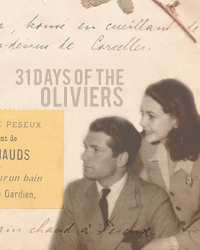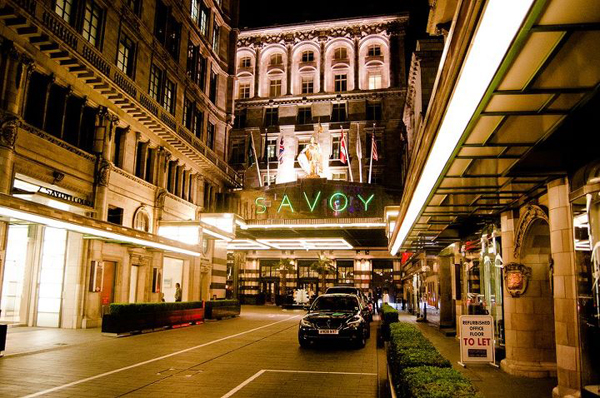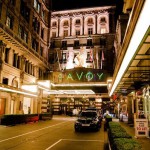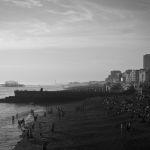 I have a bunch of magazine and newspaper articles left over from my dissertation research, so I’ve decided to do “31 Days of the Oliviers.” Each day I will post a new article or blog post, ending with Vivien Leigh’s birthday on November 5. These articles (most of which have Vivien as the main subject) span the years 1937-1967 and come from both American and British sources. I hope you enjoy reading them as much as I do!
I have a bunch of magazine and newspaper articles left over from my dissertation research, so I’ve decided to do “31 Days of the Oliviers.” Each day I will post a new article or blog post, ending with Vivien Leigh’s birthday on November 5. These articles (most of which have Vivien as the main subject) span the years 1937-1967 and come from both American and British sources. I hope you enjoy reading them as much as I do!
{Day 3} Today’s post was submitted by Vivien Brunning, a fan who shares the personal story of how reading about Vivien Leigh has helped her in her own battle with Bipolar Disorder. Thanks so much, Vivien, for the insightful and heartfelt post.
****
By many accounts, Vivien Leigh had it all – she was a true renaissance woman. The public and Laurence Olivier adored her, she won two Academy Awards, had impeccable taste and several devoted, lifelong friends. She also suffered from a torment that took its toll, one that eventually she could not hide. In addition to suffering from tuberculosis, Vivien was Manic Depressive or as the disease is known today, Bipolar. Her plight may have been devastating and severe, but in a very profound way she also helped me successfully navigate my own journey through the lands of Bipolar Disorder.
By the time I was 20 years old I knew I was suffering from a mood disorder. I didn’t know it had a name but I knew I was in trouble. While I was investigating the origins of my first name, some miracle of fate brought a biography of Vivien Leigh into my hands. I read it. Then, I read another. And then another. By the time I had devoured all three I was dead certain I was just like her. I was cycling with highs and lows, and exhibiting a lot of the same behaviors and traits that Vivien had; little sleep needed, trouble with balance (Vivien could never ride a bicycle, I’m not much better), almost super-human productive periods followed by a ‘crash.’ Stressful events would set off manic periods for me, and were always followed by periods of long and crippling depressions, as they were for Vivien. For her, the news of Olivier’s impending knighthood set off a manic attack, with a deep and long depression following. At the time I was reading about her life, I was coming down from a high of my own, set off by receiving the extraordinary news I’d been accepted into every college to which I applied. I was spiraling down for no good reason and knew it, but thankfully, right in front of me were several accounts of someone who did the same. This thing had a name and I wasn’t alone. I also realized that left to my own devices, Vivien’s story would become my personal roadmap.
There are two main types of Bipolar Disorder. Bipolar I, which Vivien suffered from, is more severe and distinguished from the other forms of BD by the presence of psychotic features (hallucinations, hearing voices, paranoia, etc.). Bipolar II is the milder form wherein depressions are still experienced, but full blown mania does not occur. A condition called hypomania (below mania) is present. Hypomanic people do not suffer from any psychosis and often find they are most productive during bouts. All too often, however, hypomania carries with it the same risky behavior that mania does, such as overspending and lashing out. Although uncomfortable to read about, Vivien certainly and unfortunately suffered through her share of risky behavior and even at times, psychosis. She was known as being a lovely and very generous person, but exhibited odd and uncharacteristic behavior when manic. Although she didn’t remember much about the events which transpired while she was experiencing mania, Vivien always insisted on apologizing afterward for any transgressions she may have committed. This is a facet of the illness I am unfortunately also familiar with.
Another reason Vivien’s story convinced me to seek help when I was only 20 was the severity of her decline. One of the most distressing things about Bipolar Disorder is that it gets worse without treatment or careful supervision at onset, and without continued maintenance throughout one’s life. Although her treatment began relatively late in the course of her illness and ECT (electroconvulsive therapy) was given to Vivien, its administration was still rather crude in her times. Actually, most treatment of Bipolar was still in its infancy. Even medication for the condition was something of a novelty. An Australian psychiatrist named John Cade began treating patients with mania using lithium in 1948, but it was many years until it came into wide-spread use. Had Vivien been born 20 or even 10 years later, she would have most likely found more relief from her Manic Depression. But, then there’s the possibility she would never have played Scarlett O’Hara or Blanche DuBoise, and may never have had a relationship with Larry.
After reading about Vivien’s plight, I was prompted to see a physician and was diagnosed with Bipolar II. I am currently on an effective course of treatment, living a happy and productive life, and can’t stress enough that I would not be in this position were it not for learning about Vivien’s story. It may sound trite, but when I am hitting a rough patch in my own battle with Bipolar, I pull out one of my Vivien Leigh biographies. She is the epitome of discipline, professionalism and grace, whether or not she suffered from Manic Depression. Surely, if Vivien could accomplish the many things she did while battling a full-blown episode, like performing in various plays, winning Oscars and even a Tony, there is much strength to be gained from such a fine example.
****
Vivien Brunning is an IT Architect, Viv and Larry fan and author who loves to hear from her readers. You can reach her at manicmuses {at} gmail {dot } com.





























